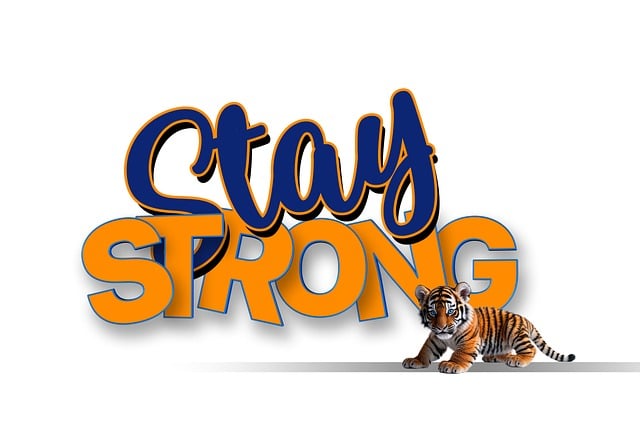Veterans facing substance abuse challenges require specialized rehab programs addressing complex co-occurring mental health issues like PTSD. Holistic approaches integrating CBT, mindfulness, group counseling, healthy sleep habits, and nutrition planning show promise in achieving long-term sobriety. These evidence-based strategies foster emotional resilience, stress management, and community support for successful transition to civilian life.
Substance abuse among veterans is a pressing issue, often stemming from unique challenges such as PTSD, trauma, and transition difficulties. This article explores a transformative solution: a holistic approach to rehabilitation that combines evidence-based therapy with mindfulness practices. We delve into the specific needs of veterans, the power of integrating these strategies, and provide insights into designing comprehensive substance abuse rehabilitation programs tailored for their successful recovery.
- Understanding Substance Abuse in Veterans: Challenges and Unique Needs
- The Holistic Approach: Integrating Evidence-Based Therapy and Mindfulness
- Designing Effective Rehabilitation Programs: A Comprehensive Look for Veterans
Understanding Substance Abuse in Veterans: Challenges and Unique Needs

Veterans often face unique challenges when it comes to substance abuse due to their distinct experiences and transitions from military service to civilian life. Post-traumatic stress disorder (PTSD), for instance, is prevalent among veterans and can significantly contribute to addiction. The high rates of PTSD, combined with other mental health issues and traumatic brain injuries, create complex barriers to recovery. Traditional substance abuse rehabilitation programs may not adequately address these complex needs, often overlooking the unique psychological and social factors that play a role in veteran patients’ struggles.
Understanding these challenges is crucial when designing effective treatment plans. Holistic wellness programs prioritizing nutrition, exercise, and stress management can be transformative for veterans. These approaches focus on fostering overall well-being by addressing physical, mental, and emotional health simultaneously. Moreover, addiction treatment centers specializing in specific substances and incorporating healthy sleep habits coaching have shown promise in helping veterans achieve sustained sobriety. Such specialized services are vital to ensuring that veterans receive the comprehensive care they deserve.
The Holistic Approach: Integrating Evidence-Based Therapy and Mindfulness

The holistic approach to substance abuse rehabilitation programs for veterans integrates evidence-based therapy with mindfulness practices, aiming to address the root causes of addiction and foster long-term recovery. This method recognizes that an individual’s mental, emotional, and physical well-being are interconnected, and by nurturing all aspects, a more profound and lasting change can be achieved. In this framework, evidence-based therapy, such as cognitive-behavioral therapy (CBT) or motivational interviewing, serves as the cornerstone, providing veterans with effective tools to confront their addiction, understand its triggers, and develop coping strategies.
Simultaneously, mindfulness practices like yoga, meditation, and Healthy Relationships Coaching in Early Sobriety are incorporated into the rehabilitation process. These activities help veterans cultivate present-moment awareness, manage stress, and enhance emotional regulation—all of which are crucial for maintaining sobriety. By combining these diverse yet complementary approaches, Addiction Treatment Centers Specializing in Specific Substances create a supportive environment that enables veterans to address their unique challenges while nurturing holistic healing. Yoga and Meditation Classes for Stress Reduction become powerful tools not only for relaxation but also for building mental resilience, enabling veterans to navigate the complexities of early sobriety with greater ease.
Designing Effective Rehabilitation Programs: A Comprehensive Look for Veterans

In designing effective substance abuse rehabilitation programs for veterans, a holistic approach is essential to address the unique needs of this demographic. Beyond addressing the physical aspects of recovery, it’s crucial to incorporate group counseling sessions that foster accountability, empathy, and community among peers in recovery. This social support network is vital for veterans transitioning back into civilian life, offering them a sense of belonging and camaraderie they may have experienced during their service.
Additionally, integrating evidence-based therapies such as Cognitive-Behavioral Therapy (CBT) alongside mindfulness practices can significantly enhance the program’s effectiveness. CBT helps veterans reframe negative thoughts and behaviors associated with substance abuse, while mindfulness practices promote stress reduction and emotional regulation. Nutrition planning services for optimal health recovery should also be a cornerstone of these programs, ensuring that veterans receive the proper nourishment to support their physical and mental well-being during the recovery process.
A holistic approach, seamlessly integrating evidence-based therapy with mindfulness practices, emerges as a powerful strategy for addressing substance abuse among veterans. By acknowledging the unique challenges and needs of this demographic, we can design comprehensive rehabilitation programs that foster sustained sobriety. These programs must be tailored to promote mental health wellness, incorporate peer support, and emphasize self-care techniques, all while leveraging evidence-based interventions proven effective in treating substance use disorders. Through such a multifaceted approach, we can better support veterans on their journey towards recovery and enhanced quality of life.






